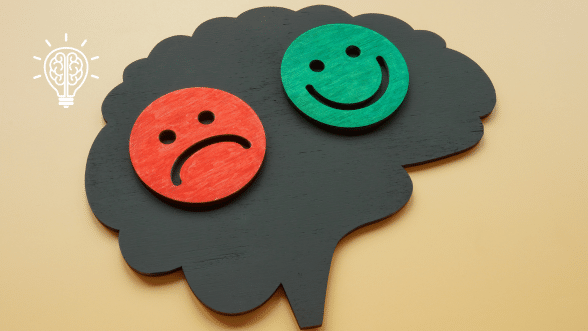“I was fine until one thing set me off—and suddenly, I couldn’t do anything.” 😣If you’ve ever experienced this kind of sudden mental derailment, you’re not alone. Emotional triggers—whether it’s a comment from a colleague, an unexpected change, or a wave of self-doubt—can have a powerful effect on your brain’s ability to function. And when they hit, it’s not just your mood that suffers—your executive functions take a direct hit too.
What Are Emotional Triggers?
Emotional triggers are situations, words, or experiences that activate a strong emotional response. They often stem from past experiences or deep-seated beliefs, and they can sneak up on us quickly. 😳
Examples include:
- Feeling criticized or judged
- Facing uncertainty or ambiguity
- Experiencing failure or making a mistake
- Being compared to others
- Getting unexpected or last-minute changes
How Do Triggers Affect Executive Function?
When we’re triggered, our brains often shift into “survival mode.” This emotional hijack activates the amygdala—the brain’s alarm system—and reduces access to the prefrontal cortex, where our executive functions live. 🧠
This impacts:
- Focus: It becomes harder to concentrate on the task at hand.
- Working Memory: Thoughts are clouded by emotional noise, making it difficult to hold onto important information.
- Inhibitory Control: Emotional reactions may take over before we can pause and think.
- Planning and Prioritizing: Everything feels urgent—or impossible.
- Self-Monitoring: Triggers often amplify self-doubt and negative self-talk.
The Emotional Loop
Here’s what often happens:
- An emotional trigger hits 😤
- You feel overwhelmed and stuck
- Your executive function skills shut down
- You struggle to take action or stay on track
- You criticize yourself for struggling, which only increases the emotional load
It’s a loop that feeds itself—until we intervene.
How Can We Support Executive Function Through Emotional Triggers?
While we can’t always prevent triggers, we can build tools and strategies to lessen their impact:
- Name it to tame it: Recognizing you’re triggered helps deactivate the emotional brain.
- Use grounding techniques: Deep breathing, sensory focus, or body scans help regulate the nervous system. 🌬️
- Externalize the plan: Use visual schedules, checklists, or written reminders to reduce cognitive load.
- Break tasks into smaller chunks: Short-term achievable goals (STAGs) reduce overwhelm and promote action.
- Build transition rituals: Structured routines can buffer the brain between emotional moments and tasks.
- Practice self-compassion: Triggers don’t make you weak—they make you human. 💛
The Bottom Line
Emotional triggers aren’t just emotional—they’re neurological. When they fire, they interfere with the brain’s ability to plan, focus, and follow through. But with the right tools and awareness, you can help yourself—or your child—stay grounded and move forward even when emotions run high.
And remember: executive function isn’t about perfection. It’s about progress, even in the face of challenge. Need help on your journey? Reach out to find a time to connect and see how coaching can support you.





